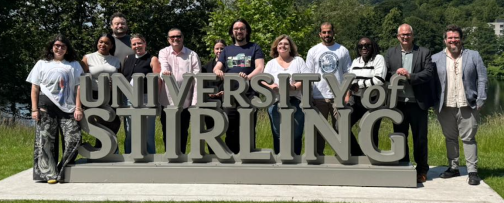Hello everyone!
It's been a while since we've posted about the book series we run for Routledge. The series is entitled 'Routledge Studies in Surveillance'. It is still publishing manuscripts and we have a number of works in progress.
We'd like to take this opportunity to remind you about the series. It's important to us that new, exciting, book-length scholarship about...














